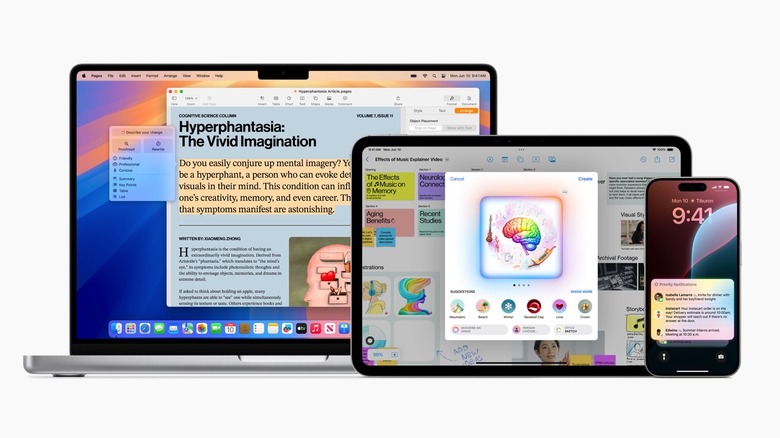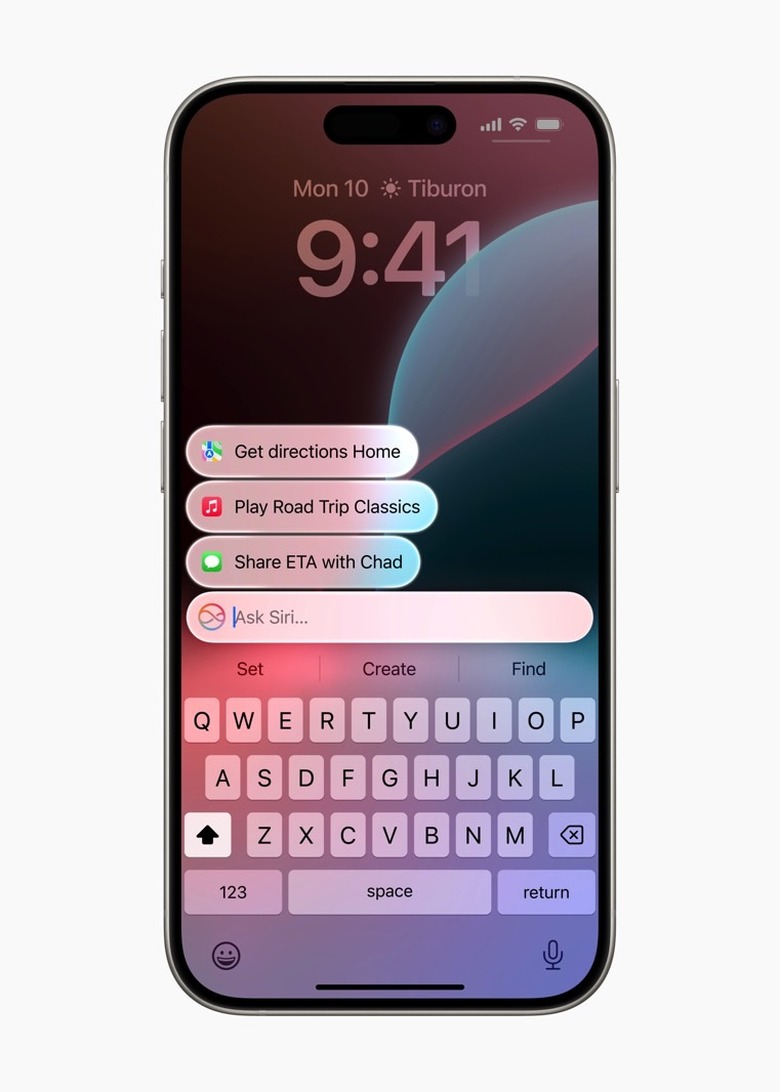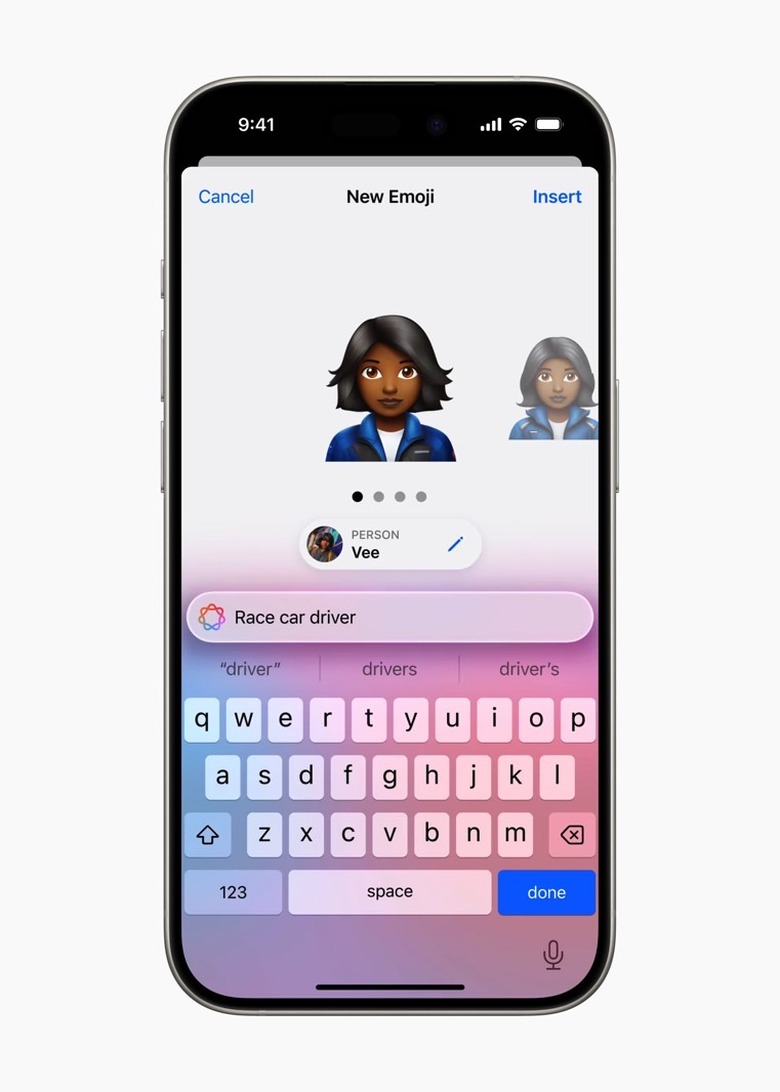iOS 18 AI Delivers The Worst Fragmentation In iPhone History
Most of the iPhone rumors preceding WWDC 2024 became true. Apple unleashed Apple Intelligence on Monday, its original take on AI, complete with a smarter Siri that's finally starting to look like the smart assistant Apple envisioned all along.
As I watched the event, it became clear to me that I was witnessing a fundamental shift in Apple computing that will impact all the computers you buy from the company. Whether it's an iPhone, iPad, or Mac, AI will be built into every piece of hardware and every app. It'll be up to the user to rely on AI features in their day-to-day use of Apple computers or not.
The iPhone will be at the center of Apple's artificial intelligence revolution starting with iOS 18, as the smartphone is the most important computer we use daily.
By the end of the keynote, another rumor prediction came true. You'll need an iPhone 15 Pro or later to get Apple Intelligence. As for the iPad and Mac, you'll need at least a M1 chip to get Apple AI going. But, again, the iPhone is the primary computer in an Apple product user's life.
As Apple officially announced Apple Intelligence compatibility, it dawned on me that we're watching the biggest fragmentation in the iPhone's history unfold. This goes hand in hand with the Apple computing shift I mentioned before.
Going forward, and for a limited time, we'll have two distinct categories of users: those who want AI on the iPhone and those who don't, those who choose to use AI features in iOS 18 and those who avoid them. There will also be a big category in between: Those users who will use some AI features without necessarily realizing that Apple Intelligence is at play.
The iOS 18 "fragmentation"
Apple only realized the full potential of the iPhone in the year following the first model's release. It took Apple a year to put an App Store on the iPhone, and that was a pivotal moment in iPhone history. From there, Apple made sure that every iOS release that followed would be compatible with as many iPhones as possible, which was a crucial advantage over Android.
The more iPhones run the latest iOS version, the more appealing the App Store is to developers. Google never matched Apple's offering, and the App Store continues to be the platform developers target first.
iOS 18 doesn't change any of that. The iPhone XR/XS generation will support iOS 18 some six years after its 2018 launch. But only two of the phones that can run iOS 18 will support Apple Intelligence, the 2023 iPhone 15 Pro and Pro Max.
Hundreds of millions of iPhones won't get Apple's AI vision. Those users will continue to experience the non-AI version of iOS, assuming they don't upgrade. Many iPhones compatible with iOS 18 will also run iOS 19 next year. They'll get multiple years of updates after that. But, unless Apple brings Apple Intelligence to the cloud for these handsets, the users will be "stuck" in a non-AI world.
Meanwhile, everyone with an iPhone 15 Pro/Max or later will be able to get on the AI train if they want to.
I can't think of a bigger "fragmentation" in iPhone history than iOS 18. I put that in quotes because it's not technically correct. All iOS 18 devices will be able to run the exact same apps. Only the AI experience will differ.
But I can tell you I can't wait to get rid of my iPhone 14 Pro, which already runs iOS 18 beta 1 just fine, but it will never get Apple Intelligence.
This is bigger than the iPhone X notch
The only thing that comes close to mind is the 2017 iPhone X design. The iPhone X killed Touch ID on the iPhone, bringing over Face ID. To this day, some people swear by the former. They'd rather use Touch ID than Face ID, even though the latter is more convenient and secure.
After the iPhone X, there were two categories of users: those who wanted Touch ID and kept buying iPhones with fingerprint sensors and those who embraced Face ID.
Apple Intelligence is a much bigger change. Non-AI iOS 18 and AI iOS 18 experiences will be completely different. Apple Intelligence can bring a significant boost in computing speed. This has nothing to do with the faster chips in the iPhone 15 Pros and the iPhone 16. The AI powering Siri and the rest of Apple's Intelligence features will help you get things done faster than the non-AI experience.
Combine that with Apple Intelligence features on iPad and Mac, and your entire computing experience will change. I'm actually surprised that visionOS 2 doesn't get Apple Intelligence features.
Apple Intelligence is inevitable
Come to think of it, some iPhone owners might discover Apple AI features on iPad and Mac before the iPhone if they have devices running on Apple Silicon (M1 or later). Once they do and start using them on iPad and Mac, they'll want AI on iPhone, too. And that might change their priorieties when buying a new iPhone.
The iPhone 16 launch event this September will deliver Apple's newest iPhone generation. But Apple will also discontinue some of the older iPhone models, and discount the not-so-old. Come September, iPhone customers interested in Apple Intelligence will have to forget all about the cheaper iPhone 14 or iPhone 15 models they might have been eying and get a more expensive iPhone 16 variant instead.
Eventually, as more iPhone users upgrade from those old iPhones that can still run iOS 18, they'll be exposed to generative AI features. And they'll start using some of them whether they want to or not, ultimately taking everything for granted.
Simple features like Siri controlling more apps, generating emoji, or proofreading text on the fly will become the norm. Add photo editing capabilities, the ability to search photos by talking to the iPhone, and generating images anywhere you need them, and you end up with more reasons to want Apple AI on the iPhone. Then there are summarizations, recording of voice/calls, transcription, and seamless continuity between iPhone, iPad, and Mac.
A new AI nightmare for Google
I can't stress the importance of the iPhone's AI age without looking at the competition. ChatGPT sent Google into shock last year, forcing a big shift in priorities. Google I/O 2023, and especially I/O 2024, are proof of that.
I dare say Apple Intelligence is as important. Not because it comes with optional but built-in ChatGPT access but because Apple has introduced the building blocks of personal AI in a way Google can't deliver. Or, put differently, Google doesn't have the same user base to attempt a similar approach. Google might have to go for a cloud-first AI approach for delivering its own version of personal AI to Android users rather than Apple's on-device-first strategy.
That's not to say that Google won't be as successful. Again, I/O 2024 was a massive display of AI power. It's just that Google AI is not necessarily a favorite.
As for Samsung's Galaxy AI headstart, well, it's safe to say they're probably going back to the drawing board. Galaxy AI isn't enough to match Apple Intelligence.



